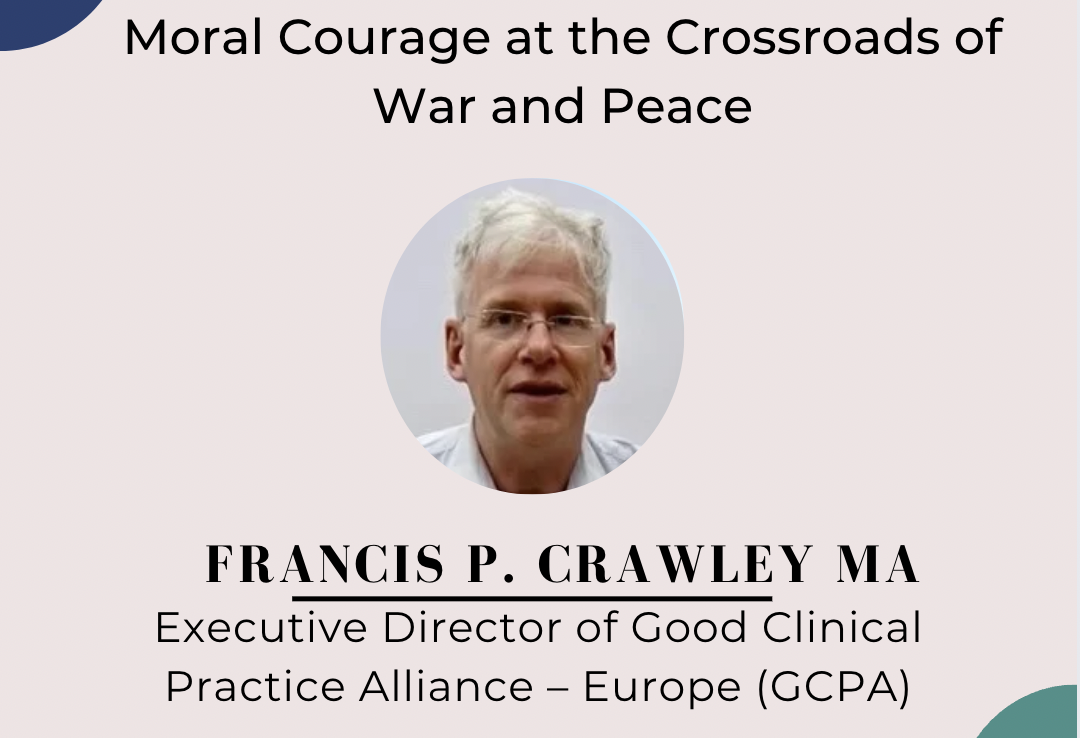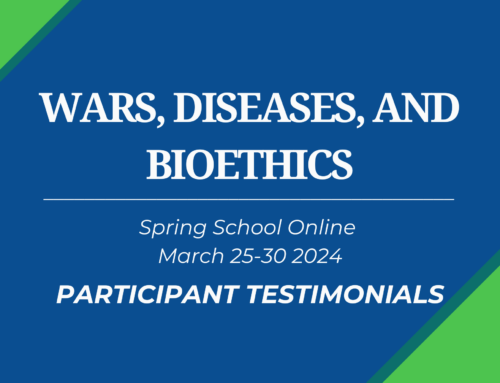This global course explores the concept of moral courage as a fundamental ethical response to the challenges faced by bioethicists and others at the crossroads of war and peace in an emerging New World Order. Moral courage is examined as a deliberate, conscientious act that aligns epistemic truth with purposeful action, particularly when doing so involves personal or institutional risk. Rooted in universal values and integrity, moral courage enables individuals, communities, and institutions to confront harmful standards, defend justice, and foster positive change even under intense pressure or societal opposition. Drawing on work with the UN, UNESCO, WHO, WMA, CODATA, and global engagements in bioethics, this course will examine how virtue is cultivated, sustained, and applied across disciplines and global contexts where human dignity and peace are under threat or attack.
Participants will engage with philosophical foundations, narratives, and real-world cases that demonstrate how moral courage is understood, valued, and expressed in fields such as bioethics, science, healthcare, education, and governance. From resisting politicization in academia to defending ethical practice in medicine or whistleblowing in research, moral courage emerges as an individual, community, or collective catalyst for the assertion of human dignity and truth over wrongfulness, violence, and the destruction of life. The growing tension between the foundational legal structures and values of the United Nations and the ‘rules-based international order (RBIO)’ are discussed, alongside the growing tension between Western values and a growing call for the respect for the sovereignty of individuals and communities. The course emphasizes how moral courage strengthens public trust, supports ethical institutions, promotes lawfulness in opposition to war, and provides a standard for the moral responsibilities of professionals and citizens in complex and volatile environments.
By integrating ethical theory with practical decision-making, the course equips participants to recognize and respond to ethical challenges in contexts marked by conflict, suppression, or moral ambiguity. It encourages critical reflection on the demands of conscience, the shaping of moral character, and the responsibility of individuals and institutions to promote and protect truth, justice, and peace. Participants will be supported in reflecting on their own capacities for moral courage as bioethicists, scholars, and global citizens committed to ethical integrity and social transformation.
The following five core topics will be addressed:
- The philosophical and ethical foundations of moral courage
- Moral courage in bioethics, academia, science, healthcare, and crisis response
- The role of epistemic truth in morality, science, education, and politics
- The emerging roles of data and AI access, sharing, communication, and governance inconflicts
- Moral courage in governance, legal systems, and civic responsibility
Through engagement with real-world cases and internationally recognized ethical frameworks, the course considers why moral clarity and ethical reasoning are required for principled action in contexts where we find ourselves at the intersection of war and peace.
Francis P. Crawley is the Executive Director of the Good Clinical Practice
Alliance – Europe (GCPA) in Brussels, Belgium. He is the founder and Director of the Strategic Initiative for Developing Capacity in Ethical Review (SIDCER). He coordinates the GCPA-SIDCER European Fellowship in
Research Ethics (EFRE) He is a philosopher specialised in ethical, legal, and regulatory issues in health research, having taught at several European, Asian, and Middle East universities. He is the past Secretary General, Ethics Officer, and Chairman of the Ethics Working Party at the European Forum for Good Clinical Practice.
He currently chairs the methodologies sub-group of the Real Word Data Working Group at the Faculty of Pharmaceutical Medicine, Royal Colleges of Physicians. He has acted as an author or expert for the leading international and European research ethics and GCP guidelines, as well as for several guidelines in Asia, Africa, the Americas, and Europe






